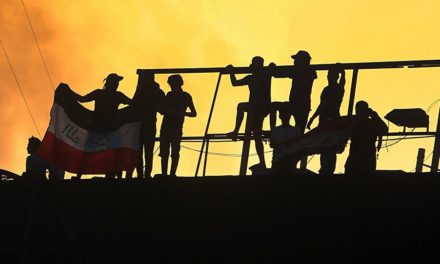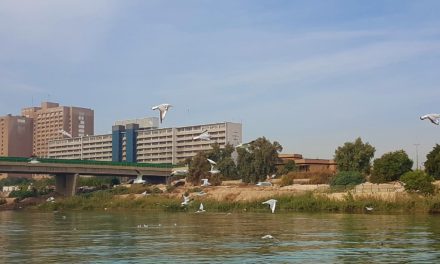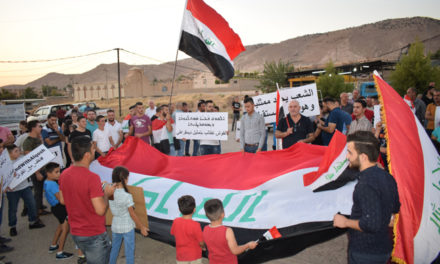Prime Minister Mohammed Al-Sudani has unveiled the “Development Road” project, estimated to cost 17 billion USD. It holds significant promise for the country’s infrastructure as it aims to connect the Gulf to Europe through improved network of highways and railways. However, it is crucial to recognize that this initiative cannot replace the Suez Canal as some may be trying to sell it and it should not be perceived as such. Furthermore, critical issues need to be addressed for the project to succeed, such as high insurance costs, internal transportation expenses faced by Iraqi consumers, and the Iraqi government’s lack of total control over its ports and airports.
Iraqi consumers bear the burden of exorbitant insurance and internal transportation costs. For example, transporting a shipping container loaded with goods from China to Basra may cost around 2,000 USD, while moving the same load from Basra to Sulaymaniyah in the northeast can cost double or even triple that amount. According to UAE-based Aramex, which operates in Iraq widely, there are several reasons for the high cost within Iraq. Aramex’s Iraq freight leader, Samer Ali, states that insuring freight shipments is costly, and traders invest substantial funds in both insurance and freight expenses. However, they receive poor service despite paying a premium price. As Aramex’s official stated, Iraqi ports use old method and takes too long to process shipments and lacks clear regulations and guidelines for traders, which opens up the chance to bribe port officials. The Development Road project aims to alleviate these challenges by creating a more cost-effective and efficient transportation system within Iraq. By connecting the Gulf to Europe via rail, the project has the potential to reduce transportation costs for Iraqi consumers significantly.
It is important to note that Iraq has historical connections to Europe through the Berlin-Baghdad railway, demonstrating that such connectivity is feasible. However, it is crucial to manage expectations and recognize that while the project will enhance Iraq’s regional transportation capabilities, more is needed to compliment the Suez Canal’s global shipping route, which has established itself for decades.
The project’s success also relies on addressing underlying issues within Iraq’s transportation infrastructure and security sector. The Iraqi government exercises complete control over some ports and airports. Other airports like in Erbil, Najaf, and Sulaymaniyah operate with considerable autonomy from Baghdad, and Iraq’s gateway to Europe through land, Ibrahim Khalil border crossing, is beyond federal control and operated by a political party, specifically the Kurdistan Democratic Party. Therefore, corruption and inefficiency of the ports will hinder any reforms. Having different entry points into the country, whether by land or air, that are not under federal control will challenge the success of the Development Road project. Which is why unified supervision and management of ports and airports in Iraq is needed. This is probably why the proposed route for the project only goes through Iraqi Kurdistan when it comes to crossing into Turkey from Mosul, which is unfortunate.
Financially, Iraq is grappling with a mounting budget deficit, exacerbating the challenges of executing large-scale infrastructure projects. The absence of a budget law since 2021 further compounds the problem, as political rivalries and disagreements have hindered the passing of a federal budget. The lack of a budget has disrupted the allocation of funds and significantly impeded investment projects throughout the country.
The Development Road project heavily relies on financial support from the government to realize its full potential. Adequate funding is necessary to improve infrastructure, establish new transport routes, and upgrade existing facilities. Without a budget law for 2023 and the government’s ability to allocate funds specifically for the project, the initiative’s viability and progress are at risk.
The prolonged absence of a budget law also undermines investor confidence and inhibits private sector involvement in the project. Uncertainty surrounding the availability of financial resources and the need for a clear roadmap for investment significantly deter potential partners from committing to the initiative. The absence of a comprehensive budget law affects the project and hampers broader economic development and stability in Iraq.
Without adequately addressing these challenges, there is a risk that this ambitious mega project may not deliver the expected results. The Iraqi government must prioritize these issues and establish effective governance mechanisms to ensure the 17 billion USD transport project represents a significant step towards rebuilding the country’s infrastructure and improving internal transportation. However, it is vital to manage expectations and recognize that the project cannot replace the global significance of the Suez Canal. Addressing high insurance costs and internal transportation expenses and establishing control over ports and airports are vital to ensuring the project’s success. By approaching these challenges with determination and effective governance, Iraq can lay the groundwork for a more efficient and cost-effective transportation network, benefiting the country’s economy and consumers.

Sarkawt Shamsulddin
Sarkawt Shamsulddin is a former member of the Iraqi Council of Representatives (2018-2021). He is a non-resident fellow At Atlantic Council. He was a co-founder of the New Generation Movement.










